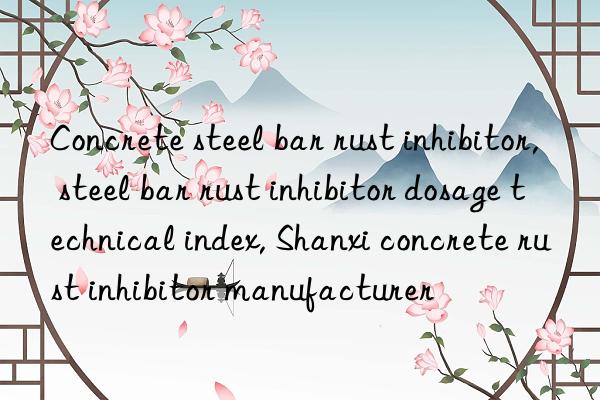
Rebar rust inhibitor is a composite steel bar rust inhibitor composed of agricultural production system and inorganic rust inhibitor components. It does not contain nitrite components and is divided into water type and powder type. There are two types, and the user unit can choose according to the convenience of adding. Added to newly poured concrete, it can be adsorbed on the surface of steel bars to form a layer of molecular chemical protective film, while simultaneously alleviating cathodic and anodic corrosion of steel bars, effectively preventing corrosion of steel bars caused by various reasons such as chloride, carbonization or stray current.
4. Product Features
▲ Low dosage and good anti-rust performance.
▲Nearly neutral, good compatibility with acidic or alkaline additives.
▲Significantly improves compressive strength and impermeability.
▲Good durability and high cost performance.
6. Scope of application
▲ Reinforced concrete structures in offshore environments, such as cross-sea Bridges, coastal piers, etc.
▲ Underground pile foundations (including prestressed pipe piles, cast-in-place piles, square piles, etc.) for reclamation projects or seaside projects, underground foundations and other reinforced concrete structures.
▲Reinforced concrete structures with high chloride ion content in the environmental medium.
▲ Sewage treatment tanks with high chloride ion content, etc.
7. Process of adding rust inhibitor to fresh concrete
l Put it into a special tank for admixtures.
l Dosage: Under moderate or strong corrosion conditions, add 2% of the weight of the cementitious material in each square of concrete; under weak corrosion conditions The amount of rust inhibitor can be appropriately reduced, but it should not be less than 1.5% of the weight of the cementitious material.
l Incorporated rust inhibitor, the water type replaces the same quality of water, and the powder type replaces the same quality of cement.
lConcrete that has been mixed evenly can be used normally. </p



 微信扫一扫打赏
微信扫一扫打赏
